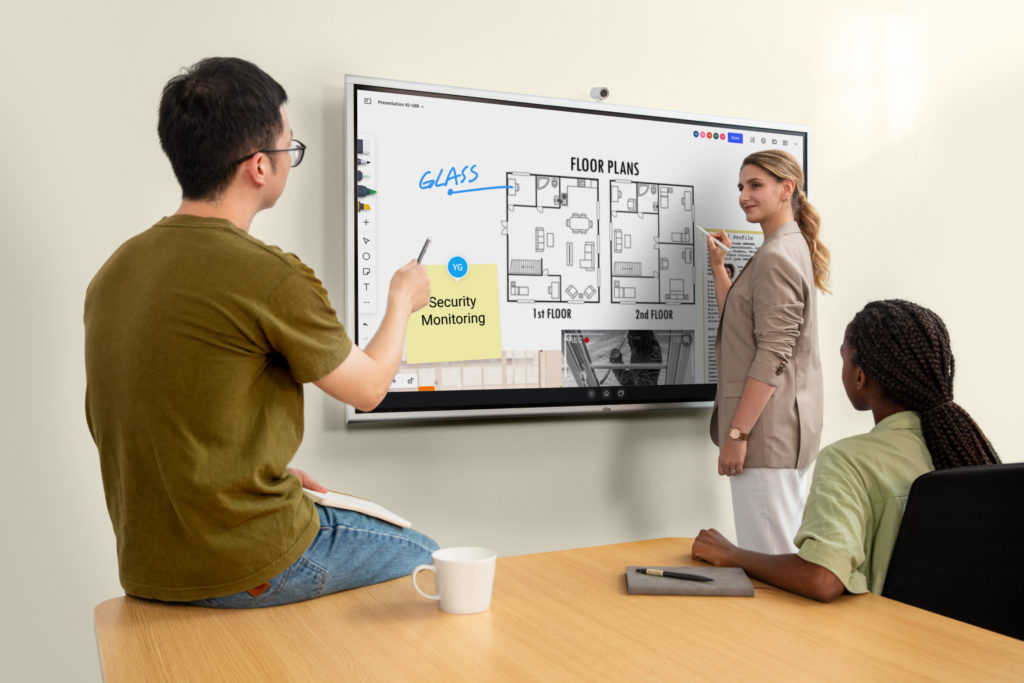Client relationship management has evolved from a simple business practice into a strategic imperative that defines the success of many modern organizations. Businesses that master the art of building, nurturing, and maintaining strong client relationships consistently outperform their competitors. The ability to create meaningful connections with clients goes beyond just customer service—it includes a comprehensive approach to understanding client needs, delivering exceptional value, and fostering long-term partnerships that drive mutual growth.

What is Client Relationship Management
Client relationship management is the systematic approach businesses use to build, maintain, and strengthen relationships with their clients throughout the entire customer lifecycle. Unlike traditional transactional approaches that focus solely on individual sales, effective client relationships emphasize creating lasting connections that benefit both the client and the business over time. This comprehensive strategy involves understanding client needs, preferences, and behaviors to deliver personalized experiences that exceed expectations.
At its core, it includes all touchpoints between a business and its clients, from initial contact through ongoing support and retention efforts. It involves proactive communication, personalized service delivery, and continuous value creation that transforms one-time buyers into long-time loyal advocates. Modern client relationship management mixes technology, human interaction, and strategic planning to create seamless experiences that build trust and drive long-term success.
The Importance of Effective Client Relationship Management
The significance of client relationship management cannot be overstated for success in today’s competitive business environment. Organizations that prioritize client relationships experience substantially higher customer retention rates, increased revenue per client, and stronger competitive positioning. Research consistently shows that acquiring new customers costs five to twenty-five times more than retaining existing ones, making effective relationship management a critical component of sustainable business growth.
Effective client relationships create a foundation for predictable revenue streams and business stability. When clients feel valued and understood, they become more likely to expand their engagement, provide referrals, and serve as brand ambassadors. This organic growth through relationship building reduces marketing costs while increasing overall profitability. Furthermore, strong client relationships provide valuable feedback loops that help businesses improve their offerings and stay ahead of market trends.

Key Benefits of Client Relationship Management
These advantages of implementing robust client relationship management practices extend across every aspect of business operations. Creating a compounding effect that strengthens over time, making this one of the most valuable investments an organization can make. Let's explore these primary benefits in greater detail:
Accurate Customer Insights
Client relationship management provides businesses with comprehensive data and insights into customer behavior, preferences, and purchasing patterns. This wealth of information enables organizations to make informed decisions about product development, marketing strategies, and service improvements. By tracking client interactions across multiple touchpoints, businesses gain a 360-degree view of their customers that reveals opportunities for enhancement and growth.
These insights go beyond simple demographic information to include behavioral patterns, communication preferences, and satisfaction levels. Advanced CRM systems like Salesforce, Zoho CRM, and HubSpot can identify trends and predict future needs, allowing businesses to proactively address client requirements before they become issues. This predictive capability transforms reactive customer service into proactive relationship building.
Deeper Customer Loyalty
Strong client relationship management practices foster emotional connections that transcend transactional relationships. When clients feel understood, valued, and consistently supported, they develop loyalty that withstands competitive pressures, budget restraints, and market fluctuations. This emotional bond creates a preference for your brand that goes beyond basic price considerations or feature comparisons.
Loyal customers generated through effective client relationships demonstrate higher lifetime values and lower churn rates. They become more willing to try new products or services, providing businesses with opportunities for organic growth. Additionally, loyal clients often become your strongest vocal advocates who share positive experiences with their networks, creating powerful word-of-mouth marketing.
More Customer Referrals
Satisfied clients who experience exceptional relationship management naturally become sources of high-quality referrals. These referrals carry significant weight because they come from trusted sources and convert at higher rates than traditional marketing leads. Client relationship management creates the positive experiences needed to motivate customers to recommend your business to others.
Referral programs integrated with relationship strategies can amplify this effect by providing structured incentives for recommendations. However, the most powerful referrals often occur organically when clients are so impressed with their experience that they voluntarily share it with colleagues. This authentic advocacy is invaluable for building brand reputation and expanding market reach.

Increased Revenue Streams
Not surprisingly, effective client relationship management directly impacts revenue through multiple channels. Existing clients who trust your organization are more receptive to upselling and cross-selling opportunities, leading to increased average transaction values. The deep understanding gained through relationship management enables businesses to identify and present relevant additional services that provide genuine value to clients.
Long-term client relationships also provide more predictable revenue streams that support business planning and growth initiatives. Clients with strong relationships are more likely to renew contracts, extend agreements, and expand their engagement over time. This revenue stability allows businesses to invest in improvements and innovations that further strengthen client relationships.
10 Client Relationship Best Practices and Techniques
Implementing effective client relationship management requires a strategic approach that combines proven techniques with consistent execution. These best practices form the foundation of successful relationship building and should be adapted to fit your specific industry:
1. Establish Clear Communication Channels
Creating accessible, reliable communication channels is fundamental to effective client relationship management. Clients should know exactly how to reach you and what to expect in terms of response times and availability. This clarity eliminates frustration and builds confidence in your commitment to their success. Multiple communication options accommodate different client preferences and urgency levels. Some clients prefer email for detailed discussions or a shared project management board, while others value quick phone calls or instant messaging for urgent matters.
2. Regularly Update Clients
Proactive communication through regular updates keeps clients informed and engaged throughout your relationship. Rather than waiting for clients to ask for status reports, successful client relationship management involves scheduled check-ins and progress updates that demonstrate ongoing attention to their needs. These updates should include both achievements and challenges, maintaining transparency that builds trust. Clients appreciate honesty about obstacles and timelines, as it allows them to plan accordingly and shows that you're managing their interests responsibly.
3. Be Proactive
Anticipating client needs and addressing potential issues before they become problems is a hallmark of exceptional client relationship management. This proactive approach demonstrates a deep understanding of client operations and a commitment to their success. Proactively monitor industry trends, understand client business cycles, and identify opportunities for improvement or expansion. This forward-thinking approach positions you as a valuable partner who contributes to client growth and success.
4. Build Personal Connections
While maintaining professionalism, effective client relationship management includes developing genuine personal connections with key stakeholders. Remembering important details about clients' lives, interests, and challenges creates bonds that extend past business transactions. Personal connections don't require extensive personal disclosure but rather a genuine interest in clients as individuals. Celebrating their successes, acknowledging challenges, and showing empathy during difficult times strengthens relationships and builds loyalty.
5. Provide Service That Delights
Exceeding client expectations through exceptional service creates memorable experiences that strengthen relationships. This approach focuses on identifying opportunities to go above and beyond standard service delivery. Small gestures often have disproportionate impact on client satisfaction and loyalty. Delightful service might include anticipating needs, providing unexpected value, or solving problems creatively.
6. Be Transparent and Honest
Transparency builds trust, which is essential for effective client relationships. This includes being honest about capabilities, limitations, timelines, and challenges. Clients appreciate straightforward communication that helps them make informed decisions and set realistic expectations. Honest communication in client relationships includes admitting mistakes and taking responsibility for corrections. This accountability demonstrates integrity and often strengthens relationships by showing that you prioritize client interests over protecting your image.

7. Offer Personalized Solutions
Tailoring your approach to each client's unique needs and circumstances is central to effective client relationship management. This personalization demonstrates that you understand their specific challenges and are committed to delivering relevant value. Personalized solutions require deep understanding of client goals, constraints, and preferences. This knowledge enables you to recommend approaches that align with their objectives and deliver meaningful results that strengthen the partnership. Generic solutions rarely create the strong connections that drive long-term relationships.
8. Always Educate and Inform
Positioning yourself as a valuable source of industry knowledge and insights enhances your role in client relationship management. Sharing relevant trends, best practices, and opportunities demonstrates expertise while providing additional value beyond your core services. Rather than generic information, focus on insights that specifically apply to each client's situation and can help them achieve their goals more effectively.
9. Show Appreciation and Gratitude
Expressing genuine appreciation for client partnerships reinforces positive relationships and encourages continued collaboration. This aspect involves recognizing client loyalty, celebrating shared successes, and acknowledging the trust they place in your organization. Appreciation in client relationships can take many forms, from simple thank-you notes to celebrating milestones together. The key is ensuring that expressions of gratitude feel authentic and proportionate to the relationship and achievements being recognized.
10. Seek and Act on Feedback
Actively soliciting client feedback demonstrates a strong commitment to continuous improvement and client satisfaction. This practice shows that you value client opinions and are willing to adapt based on their input. More importantly, actually acting on that feedback proves that you take their suggestions seriously. Feedback collection should be systematic and ongoing rather than limited to periodic formal surveys.

Build Client Relationships with the Vibe Board S1
The Vibe Board S1 transforms how businesses excel in client relationship management, supporting the critical journey from initial connection to long-term partnership success. When meeting prospective clients for the first time, the 55-inch 4K interactive display creates an immediately engaging environment where up to 20 simultaneous touch points allow everyone to participate actively in discussions, establishing trust through collaborative first impressions that demonstrate your team's innovative approach.
As relationships develop, Vibe's seamless integration with over 250 business applications like Microsoft 365, Google Workspace, and Zoom ensures that every presentation, training session, and strategic discussion becomes an opportunity to deepen engagement. Real-time document annotation and instant content sharing transform routine meetings into dynamic collaborative experiences where clients feel genuinely involved in shaping solutions, fostering the partnership mentality that distinguishes strong business relationships.
The platform's cloud-based session saving and multi-device compatibility extend your influence beyond meeting rooms, enabling ongoing relationship maintenance through easily accessible shared content that keeps your expertise visible and your commitment tangible. This continuous touchpoint reinforces value while supporting follow-up conversations that strengthen bonds over time.
By turning traditional client interactions into memorable, collaborative whiteboard experiences, Vibe Boards help businesses master the complete relationship lifecycle—building initial trust, nurturing ongoing partnerships, and maintaining the strong connections that consistently outperform competitors in today's collaborative business environment.
Ready to Transform Your Client Relationships?
Strong client relationship management isn't just about having the right strategies—it's about having the right tools to execute them effectively. Learn more about how the Vibe Board S1 can help you build engaging client relationships with ease.
 Colleagues collaborating around a Vibe smart whiteboard to engage with clients during a video meeting.
Colleagues collaborating around a Vibe smart whiteboard to engage with clients during a video meeting.







-1sbltxxq4FYxHrXrwJVLsCDNsXpqNa.webp)
-5Zp0pmSytvcuYDVs1LvuwplKuRneK0.webp)

